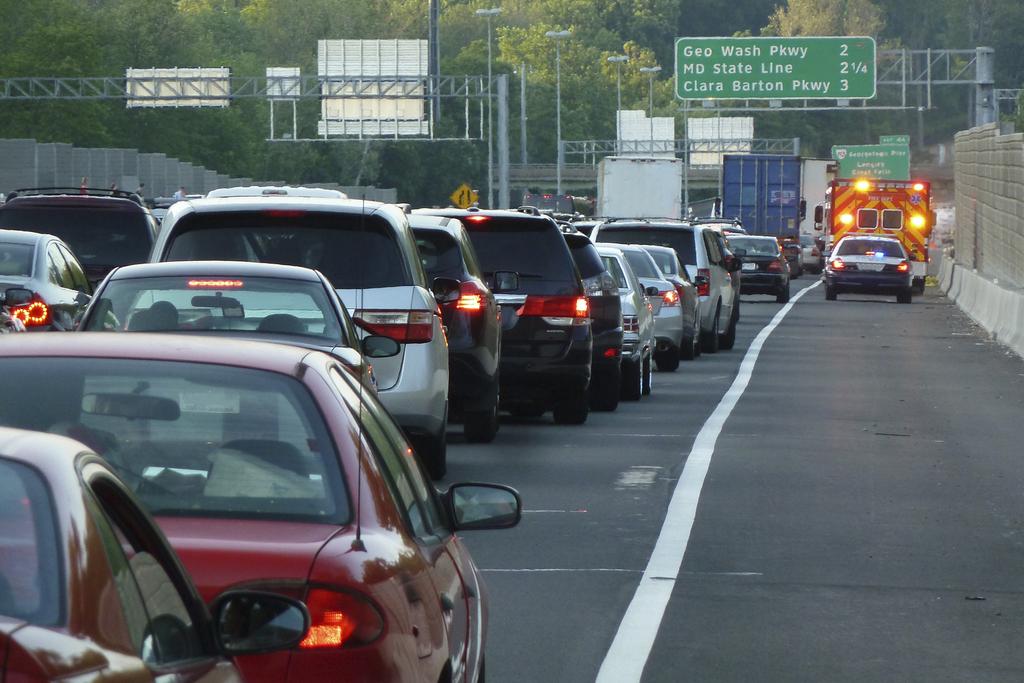
What if we could get where we're going quickly, safely, and with less traffic congestion, all while reducing air pollution and maintaining a thriving auto industry? That's pretty much what the authors of a new report titled "Urban Mobility at a Tipping Point" are predicting — but you have to be willing to share.
Related: DOT Targets 'Megaregions' for Highway Planning Forums
As the world population continues to grow, auto sales are expected to increase by about 44 percent to 125 million within just the next decade, according to the report from management consulting firm McKinsey & Co. Meanwhile, the global car count of 1.2 billion is projected to double by 2030. Anyone who's sat staring at the brake lights of the car in front of them during their daily commute to work, or is aware of the tenuous state of the U.S. transportation infrastructure or has looked at the Los Angeles skyline through a haze of smog, should at least be skeptical that such growth is sustainable under present circumstances.
"The existing urban infrastructure cannot support such an increase in vehicles on the road," the report bluntly stated. "Congestion is already close to unbearable in many cities and can cost as much as 2 to 4 percent of national GDP, by measures such as lost time, wasted fuel, and increased cost of doing business."
Solving these problems will require a massive coordinated effort on virtually every level of society, and changes in the nature of privately owned vehicles is just one of those. The McKinsey report says these changes will focus on four major technological trends:
- In-vehicle connectivity: Using real-time car-to-car crowd-sourced data on traffic conditions to reroute drivers and relieve congestion.
- Electrification: Researchers forecast that sales of plug-in and hybrid vehicles will quintuple by 2022 to comprise 11 percent of the global market due in part to improved battery life, decreasing pollution.
- Car sharing: Short-term rental and Uber ride share services could decrease the number of cars on the road simultaneously, reducing congestion by increasing the average per-vehicle mileage by nearly 75 percent; in other words, fewer cars but in constant use, as opposed to now when most sit idle 90 percent of the time.
- Autonomous driving: Studies show this technology could reduce accidents by as much as 90 percent, save thousands of lives and $190 billion a year in the U.S. by 2050, while increasing the capacity of highways as more cars can travel faster and closer together with fewer collisions.
These four factors would work together in varying degrees to foster what researchers refer to in the report as "new mobility services." These would include peer-to-peer car sharing, in which people rent out their private vehicles when they're not using them; increased use of car sharing via a "fleet operator" for short-term rentals; and shared "e-hailing," in which riders going the same direction share the car, split the fair and lower the cost.
McKinsey predicts that people ultimately would use cars more, bolstering auto sales amid individual vehicle-ownership declines in recent years. According to a study cited from the University of Michigan's Transportation Research Institute, vehicle ownership between 2006 and 2012 dipped by 5 percent to 0.74 cars per person, and by 12 percent to 1.93 vehicles per household. Meanwhile, despite recent studies suggesting that millennials are buying more cars, analyses show they're 16 percent less likely to commute to work by car, use public transportation three times as much and are nearly a quarter less interested in owning a car than the generation before them — all while enthusiastically embracing shared-transportation services like Uber.
"So what will the future of urban transit be? Our view is that it will be more on-demand with more sharing, and will provide a broader spectrum of services," researchers stated. "Urban mobility will likely be lower cost, faster, and safer, and the lines between private and public transportation will be increasingly blurred."
No comments:
Post a Comment